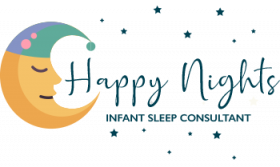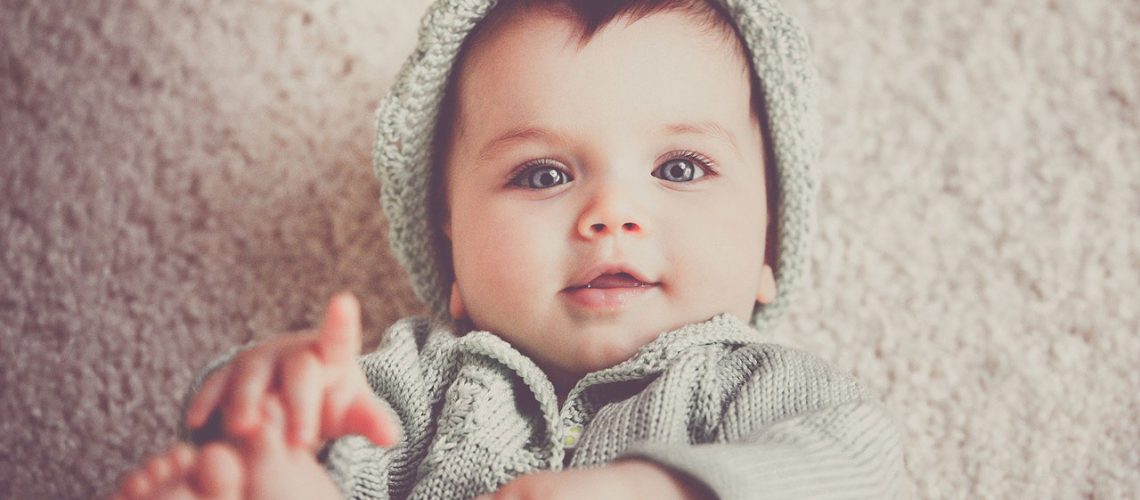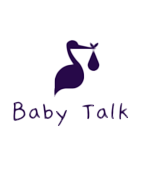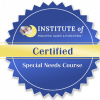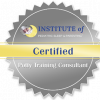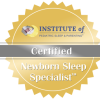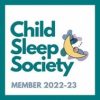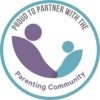Bonding with your baby as soon as possible after their birth is recommended – and most people don’t need any encouragement as they can’t wait to hold and cuddle their precious new born! Bonding involves your baby’s and your sense of smell as well as body contact, and it’s a mutual experience, with caregivers enjoying the scent and feel of their baby just as much as their baby enjoys the comfort of being held and the smell of the one holding them.
Look into my eyes!
Eye contact is another form of bonding with your baby. Not only is it vital for their social and emotional growth, but it helps to stimulate their communication skills, too.
Even though a baby’s vision is blurry for the first 6-8 weeks, they are capable of making eye contact as soon as they are born – so when you are gazing at your baby’s perfect little face, it is actually just as beneficial to their development as it is wonderful and enjoyable for you!
At around 3-4 months, babies start to develop more sophisticated visual perception and communication skills. They are able to see colour and to smile back at you when you make eye contact. This is a wonderful time to begin the fun of sharing colourful books and toys, which will stimulate their interest and encourage the development of their inquisitive minds.
During the period between 6 – 9 months, your baby’s eye colour may be starting to change, but this happens so slowly that it’s almost imperceptible.
Between the ages of 7 to 8 months, your baby will have clear enough vision to recognise people and objects from afar. Most babies will be able to spot something from across the room and point to it. They will be endlessly entertained by games such as ‘peek-a-boo’ or hiding an object – for example, under a blanket – and then making it reappear again moments later.
As your child continues to grow, you will notice that they are distracted by many things. As they develop, so does their curiosity, and their knowledge of the world around them is constantly expanding. They may enjoy watching moving objects, such as fans, or a plane flying in the sky. They are also increasingly interested in faces – not only those of their primary caregivers, but also those of those strangers. You may notice that they now begin to explore the movement, expression and texture of your face with their hands, as well as with their eyes.
Your baby will also start to delight in the appearance of their own face and will enjoy being put in front of a mirror.
Have you ever been disconcerted by having a conversation with someone who is wearing dark glasses? Not being able to see someone’s eyes makes it more difficult to read facial cues, in the same way that conducting conversations via text message can lead to misunderstandings, because both tone of voice and facial expression are absent. When we look into each other’s eyes, it enhances communication and helps with focusing on what is being said – and, as well as looking into our eyes, babies will also pay attention to the movement of our mouths, which in turn encourages speech.
So, as the expression goes, the eyes really do have it! Because new born babies sleep for so many hours each day, one of the best times to establish eye contact with them is when they are feeding. Whether they are taking their milk from the breast or from the bottle, it is an ideal time to share that magical bonding. Imagine how safe and loved your baby feels in that moment, being held close to the warmth of your body, breathing in your familiar scent, being nourished with delicious food. Add gazing into their eyes into this scenario and you can see why these experiences will be wonderfully positive for their formative development, emotional security and sense of wellbeing. At these times, your baby may additionally enjoy the sound of your voice, whether you’re talking or singing to them while looking them in the face and gently caressing their little feet. There is so much to gain from these precious moments, which not only help your baby to relax and to get a full feed, but also enhance and strengthen your bond.
If you are at all worried about your baby’s eyes or sight or are concerned that they are not reaching various milestones, then do speak to your GP, midwife or other healthcare provider.
